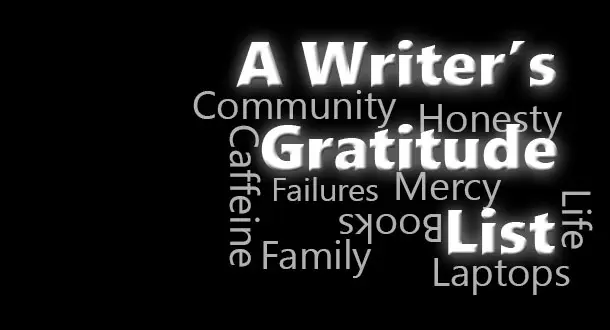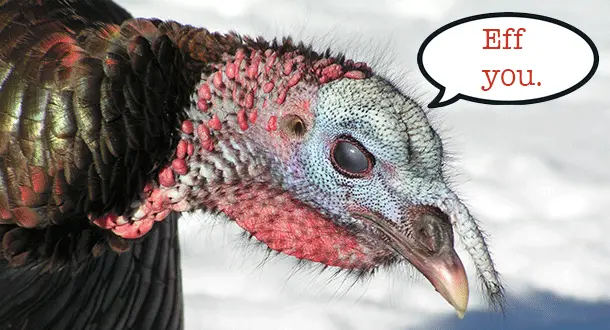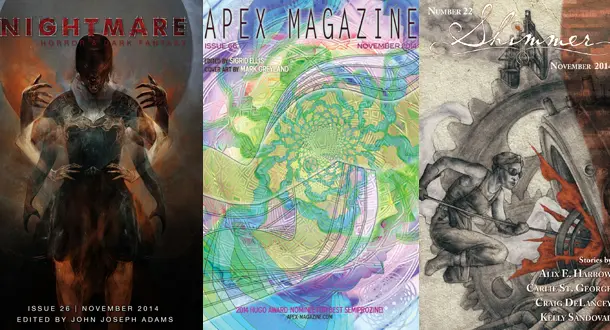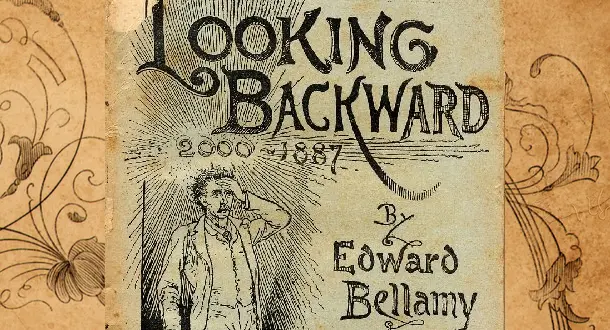Menu
Columns
Showing 3546 Columns
Showing 3546 Columns
December 3rd, 2014

Header image via Brent Schoonover If you’re on Facebook or other social media outlets and you're following characters like LitReactor’s Rob Hart or Thuglit’s Todd Robinson, chances are you’ve seen invites and pictures of an event called Noir at the Bar. Even if you’re not connected to those two and you’re friends with someone like Benjamin Whitmer, Hilary Davidson, Owen Laukkanen, Megan Abbott, and J.
Read Column →December 1st, 2014

They say no two snowflakes look alike, an idea with such immediate relevance to the over-nurtured product of modern middle-class rearing practices that a whole subreddit is devoted to tales of Special Snowflakes — people afflicted with the syndrome of thinking that they’re unique, special and just a bit better than everyone else.
Read Column →November 26th, 2014

Flash fiction: A style of fictional literature marked by extreme brevity. Welcome to LitReactor's Flash Fiction Smackdown, a monthly bout of writing prowess. How It Works We give you inspiration in the form of a picture, poem, video, or prompt. You write a flash fiction piece using the inspiration we gave you. Put your entry in the comments section. One winner will be picked and awarded a prize.
Read Column →November 26th, 2014

Thanksgiving approaches, and it's time to give thanks. As writers, we have a unique set of items to be thankful for. Having trouble finding that gratitude inside yourself? Maybe this list of writerly items will help steer you in the right direction.
Read Column →November 26th, 2014

Face it: In this season of harvest, bounty, and plentitude, sanctimony reigns. We justify our piggishness at the Thanksgiving table by fooling ourselves into thinking that we’re celebrating a noble emotion: gratitude. But in fact, we give thanks, oh Lord, for our third helping of stuffing, for the host’s choice of a delightful tarte tatin over a clichéd pumpkin pie, and most of all for the fact that nobody makes that godawful 1950s canned sweet potatoes with marshmallows casserole any more. (What’s that you say? Your grandmother makes this horror every year?
Read Column →November 25th, 2014

Cover art by Jeff Simpson, Mark Greyland and Sandro Castelli, respectively. Back in May of this year, the lit-mag Shimmer—which publishes mainly dark fantasy—went all digital with its 19th issue.
Read Column →November 25th, 2014

Wow, you guys. This is it! This is the column in which we discuss completing our novels. We've come so far together, talking about research and planning, getting started, and the daily grind of writing our words. But what about ending our books? What about those final moments? How do we know when our stories end? At how many words? And what should we do once we've typed that exhilarating phrase: The End? What comes next?
Read Column →November 24th, 2014

Let me tell you about a life thing that I didn't handle very well. I had a girlfriend. And a new writing habit. Writing's a good new habit to have, and my girlfriend was a good girlfriend to have. I know, so far none of this sounds like a problem.
Read Column →November 21st, 2014

Author photo by Shane Leonard via stephenking.com - Typewriter image by Caryn Morgan Stephen King has his faults as a writer—this is the man who gave the world a book where people literally shit aliens—but the one accusation you can't lay at his door is that he doesn't write enough.
Read Column →November 21st, 2014

There's a fascinating little book you've probably never heard of called Looking Backward: 2000-1887, but a little over a hundred years ago it was wildly popular. In fact, at the time, it was the third best-selling novel, and it did something few other works of fiction dared to do: it predicted the future.
Read Column →🎼
Tell us about your book, and we'll give you a writing playlist
Take our 1 minute quiz to find your ideal tunes.